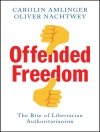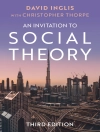In this thought-provoking new book, Anthony Smith analyses key debates between historians and social scientists on the role of nations and nationalism in history.
In a wide-ranging analysis of the work of historians, sociologists, political scientists and others, he argues that there are three key issues which have shaped debates in this field: first, the nature and origin of nations and nationalism; second, the antiquity or modernity of nations and nationalism; and third, the role of nations and nationalism in historical, and especially recent, social change.Anthony Smith provides an incisive critique of the debate between modernists, perennialists and primordialists over the origins, development and contemporary significance of nations and nationalism. Drawing on a wide
range of examples from antiquity and the medieval epoch, as well as the modern world, he develops a distinctive ethnosymbolic account of nations and nationalism.
This important book by one of the world’s leading authorities on nationalism and ethnicity will be of particular interest to students and scholars in history, sociology and politics.
Inhoudsopgave
Acknowledgements vi
Preface vii
1 Introduction 1
2 The development of organized capitalism (1) 17
Germany: the ‘ideal type’? 17
Sweden: from finance capital to social democracy 29
Britain: the Makler economy 42
3 The development of organized capitalism (2) 56
France: dislocation through ‘economic forwardness’ 56
United States: instrumentalism and progressivism 67
4 Economic change and spatial restructuring (1) 84
Britain 93
The United States 109
5 Economic change and spatial restructuring (2) 124
France 124
Germany 136
Sweden 152
6 The service class: its emergence and some consequences 161
The American service class 163
The service class in Europe 178
7 Industry, finance, politics: modes of disorganization 196
Industrial changes 196
Banks and finance 201
Political changes 209
8 The changing structure of trade-unionism: the end of neo-corporatism? 232
Sweden: the crisis of central bargaining 236
West Germany: co-determination and disorganization 253
France: labour excluded 262
Britain: capitalism’s weakest link 269
9 Postmodern culture and disorganized capitalism: some conclusions 285
The social basis of the postmodernist sensibility 285
Capitalist disorganization and politics 300
Notes 314
Index 378
Over de auteur
Scott Lash is the author of many books and has also worked within the Centre for the Study of Cultural Values at the University of Lancaster. This book is a sequel to Scott Lash and Jonathan Friedman’s influential reader, Modernity and Identity, published by Blackwell in 1992.












